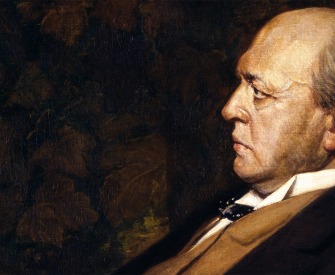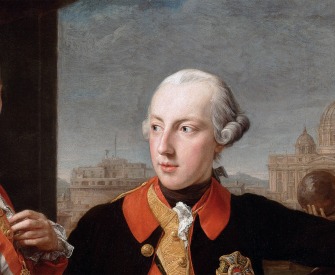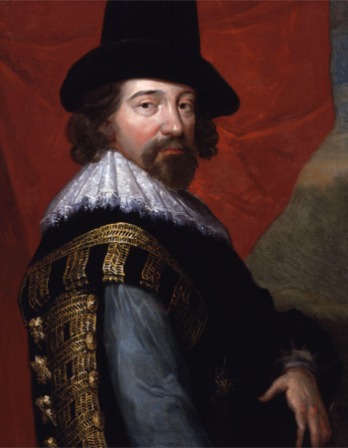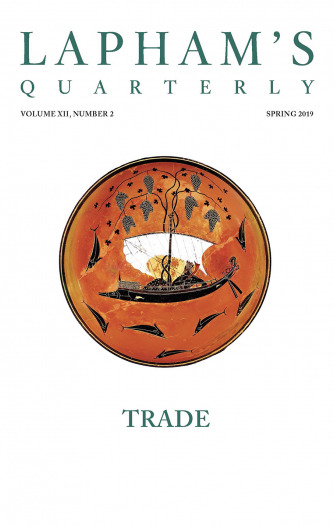If men are to wait for liberty till they become wise and good in slavery, they may indeed wait forever.
—Thomas Babington Macaulay, 1843Live in Sin
John Milton argues that the will cannot be licensed.
If we think to regulate printing, thereby to rectify manners, we must regulate all recreations and pastimes, all that is delightful to man.
No music must be heard, no song be set or sung, but what is grave and Doric. There must be licensing dancers, that no gesture, motion, or deportment be taught our youth but what by their allowance shall be thought honest. It will ask more than the work of twenty licensers to examine all the lutes, the violins, and the guitars in every house; they must not be suffered to prattle as they do, but must be licensed what they may say. And who shall silence all the airs and madrigals that whisper softness in chambers? The windows also, and the balconies, must be thought on; these are shrewd books, with dangerous frontispieces, set to sale: Who shall prohibit them, shall twenty licensers? The villages also must have their visitors inquire what lectures the bagpipe and the rebec reads, even to the balladry and the gamut of every municipal fiddler.
Next, what more national corruption, for which England hears ill abroad, than household gluttony? Who shall be the rectors of our daily rioting? And what shall be done to inhibit the multitudes that frequent those houses where drunkenness is sold and harbored? Our garments also should be referred to the licensing of some more sober workmasters, to see them cut into a less wanton garb. Who shall regulate all the mixed conversation of our youth, male and female together, as is the fashion of this country? Who shall still appoint what shall be discoursed, what presumed, and no further? Lastly, who shall forbid and separate all idle resort, all evil company? These things will be, and must be, but how they shall be least hurtful, how least enticing, herein consists the grave and governing wisdom of a state.
To sequester out of the world into Atlantic and utopian politics, which never can be drawn into use, will not mend our condition; but to ordain wisely as in this world of evil, in the midst whereof God hath placed us unavoidably. Nor will Plato’s licensing of books do this, which necessarily pulls along with it so many other kinds of licensing, as will make us all both ridiculous and weary, and yet frustrate; but those unwritten, or at least unconstraining, laws of virtuous education, religious and civil nurture, which Plato there mentions, as the bonds and ligaments of the commonwealth, the pillars and the sustainers of every written statute; these they be, which will bear chief sway in such matters as these, when all licensing will be easily eluded. Impunity and remissness for certain are the bane of a commonwealth, but here the great art lies, to discern in what the law is to bid restraint and punishment, and in what things persuasion only is to work. If every action which is good or evil in man at ripe years were to be under pittance, prescription, and compulsion, what were virtue but a name, what praise could be then due to well-doing, what gramercy to be sober, just, or continent?
Many there be that complain of divine Providence for suffering Adam to transgress. Foolish tongues! When God gave him reason, he gave him freedom to choose, for reason is but choosing; he had been else a mere artificial Adam, such an Adam as he is in the motions. We ourselves esteem not of that obedience, or love, or gift, which is of force; God therefore left him free, set before him a provoking object ever almost in his eyes; herein consisted his merit, herein the right of his reward, the praise of his abstinence. Wherefore did he create passions within us, pleasures round about us, but that these rightly tempered are the very ingredients of virtue? They are not skillful considerers of human things who imagine to remove sin by removing the matter of sin; for besides that it is a huge heap increasing under the very act of diminishing, though some part of it may for a time be withdrawn from some persons, it cannot from all, in such a universal thing as books are; and when this is done, yet the sin remains entire. Though ye take from a covetous man all his treasure, he has yet one jewel left, ye cannot bereave him of his covetousness. Banish all objects of lust, shut up all youth into the severest discipline that can be exercised in any hermitage, ye cannot make them chaste, that came not thither so: such great care and wisdom is required to the right managing of this point.
Suppose we could expel sin by this means. Look how much we thus expel of sin, so much we expel of virtue, for the matter of them both is the same: remove that, and ye remove them both alike. This justifies the high providence of God, who, though he commands us temperance, justice, continence, yet pours out before us even to a profuseness all desirable things, and gives us minds that can wander beyond all limit and satiety. Why should we then affect a rigor contrary to the manner of God and of nature, by abridging or scanting those means, which books freely permitted are both to the trial of virtue and the exercise of truth?

John Milton
From Areopagitica. In 1642 Mary Powell, Milton’s wife, left him shortly after their marriage and returned to her family. During her three-year absence, Milton wrote several tracts on the subject of divorce, which he published in violation of an ordinance requiring authors to get approval before printing their works. He wrote Areopagitica in protest of the treatment of John Liburne, who in 1638 had been arrested, fined, and flogged for importing subversive books. “Who kills a man kills a reasonable creature,” Milton writes elsewhere in this text, “but he who destroys a good book kills reason itself.”



